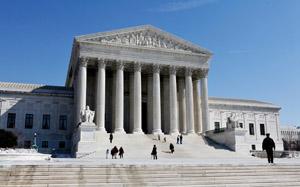US Supreme Court to interpret FOIA Exemption 4

Update 7/5/2019: On Monday, June 24th, the U.S. Supreme Court made it easier for companies to keep information submitted to the federal government from the public by adopting a broader meaning of what can be deemed confidential under the Freedom of Information Act. In an opinion by Justice Neil Gorsuch, the Court ruled 6-3 that when commercial or financial information is (1) both customarily and actually treated as private by its owner, and (2) provided to the government under an assurance of privacy, the information is “confidential” within the meaning of Exemption 4 of FOIA. This overruled a 45-year-old precedent in National Parks & Conservation Association v. Morton, which had held that information is “confidential” — under the meaning in Exemption 4 — only where the disclosure was likely to (1) hurt the government’s ability to obtain necessary information in the future or (2) cause “substantial harm to the competitive position of the person from whom the information was obtained.”
This spring, the United States Supreme Court will interpret for the first time the exemption that allows for trade secrets to be withheld from disclosure under the federal Freedom of Information Act.
In a nearly decade-long legal dispute over whether data on the annual revenue that retailers receive from the federal nutrition assistance program should be made public, Food Marketing Institute v. Argus Leader Media is giving the nation’s highest court its first opportunity to interpret FOIA’s Exemption 4.
The exemption allows an agency to withhold “trade secrets and commercial or financial information obtained from a person and privileged or confidential.” The Supreme Court will decide whether the government can withhold from the public information that businesses have submitted to it, but that those businesses argue is confidential, or whether the information should be withheld only if substantial competitive harm would result from the disclosure. Courts have interpreted this exemption differently.
In the Argus Leader’s legal battle for access to nutrition assistance program data, both the U.S. Department of Agriculture and the Food Marketing Institute have said that sharing the data would cause competitive harm to retailers. The courts, including the U.S. Court of Appeals for the 8th Circuit, have repeatedly rejected that notion.
The legal fight moved to the halls of Congress last year when the Food Marketing Institute pushed Congress to include a specific exemption from disclosure for this information as part of the farm bill. After the Reporters Committee and other groups objected, the provision was dropped from the final language before President Trump signed the bill.
The Reporters Committee plans to file an amicus brief on behalf of a media coalition in support of the Argus Leader. Oral arguments in FMI v. Argus Leader have been scheduled for April 22.